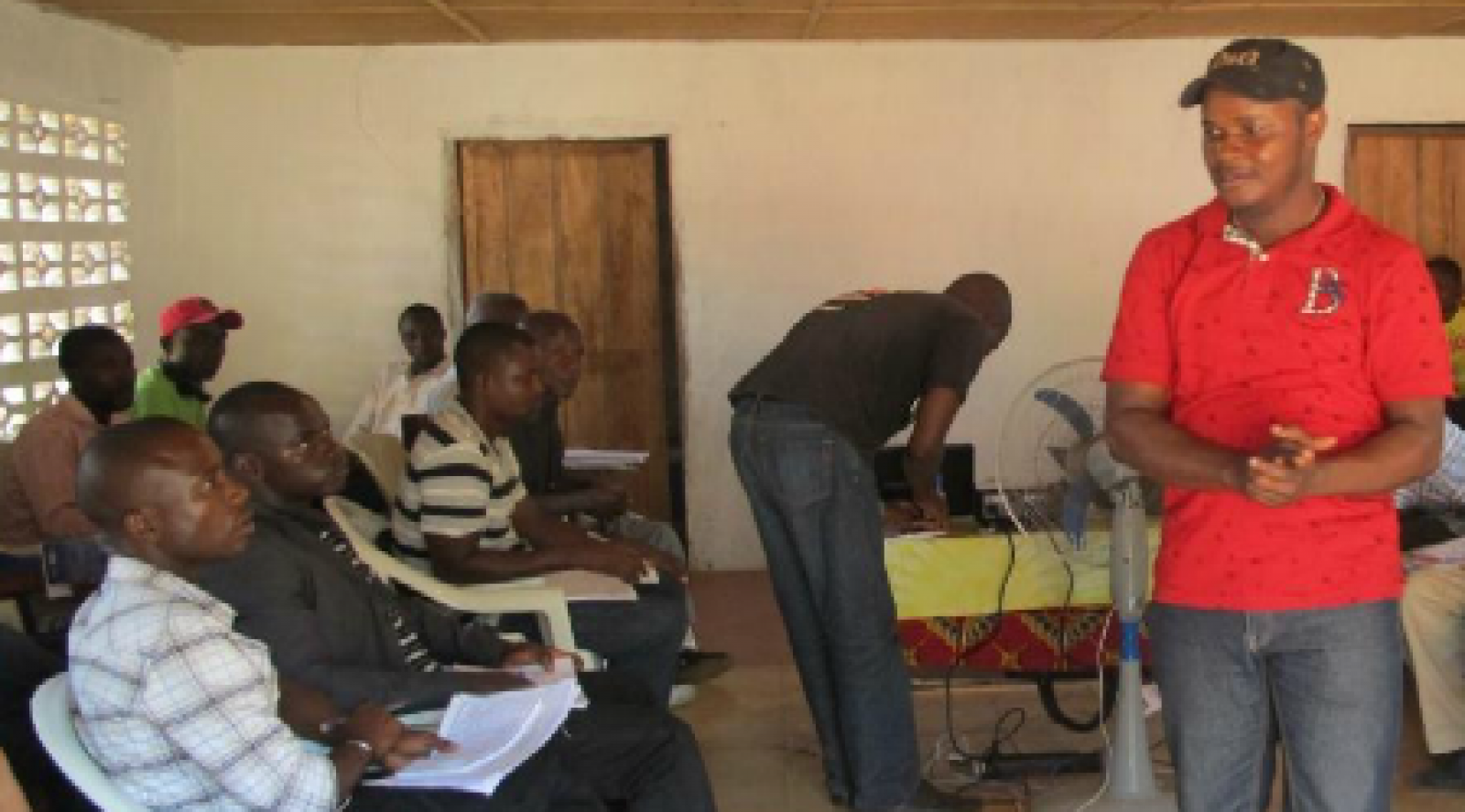
SHARE
In an effort to stem the spread of Ebola, which has claimed the lives of 4,408 of their countrymen, neighbors in rural Liberia went door-to-door throughout the month of January to raise awareness on how to treat and prevent the disease. They reached 5,000 people as part of a community-led task force established last October and organized by NDI and three community organizations.
Since the initial outbreak of the disease in Liberia last year, the spread of Ebola has slowed, with only two new cases diagnosed in March, according to the World Health Organization. While the virus spread most rapidly in metropolitan areas, rural communities were also vulnerable due to a lack of access to health care and poor transportation. In some areas, it can take up to three days by car to reach the nearest hospital due to the poor condition of paved roads.
The task force is a partnership of the Consortium on Natural Resource Management (NRM), the Southeastern Women Development Association (SEWODA), and the Liberia Water, Sanitation & Hygiene Network (WASH). Together they developed plans to reach residents of 16 communities in Montserrado, Bong, Maryland, River Gee, Bomi and Margibi counties.

Task force leaders identified point persons, called animators, to work with 320 leaders across the six counties to create plans to address their communities’ needs. For example, news spread that women in labor were being denied care at hospitals, which led families to distrust the health care system. In response, task force members identified clinics that would perform deliveries.
“This is the very first time a civil society organization is here to discuss and fight against Ebola with the community,” said a participant from Old Sodoken in Maryland County. NDI’s partners also organized the first community initiative in King Gray, in Montserrado County--comprised of 20 participants, including Town Chief Edwin Collins.
The task force organized door-to-door campaigns in rural villages to pass out flyers, developed by the Liberian Ministry of Health, with practical steps on how to prevent the spread of infection. Animators found that neighbors were more receptive to government information when it was explained by someone they trusted.
“It is only the communities that can finish Ebola because they’re the ones being seriously affected,” said Nathaniel Duwor, community animator.
In the communities of Chicken Soup Factory and Snow Hill, animators visited more than 500 homes. “We didn’t have the skills to fight the virus. We have to educate our communities on the prevention of the virus,” said Representative Richmond Anderson of Chicken Soup Factory. “The death toll was a result of denial and lack of education.”
In Swagger Island and River View they visited 250 homes and involved over 1,300 people. More than 1,000 flyers were posted, reaching 5,000 people.
SEWODA also developed a jingle that aired in four local languages on community radio stations. The jingle described the symptoms of Ebola, how to prevent infection and chanted an emergency health center number.

In Bassa Town, teams identified four critically ill people who had not sought treatment for fear of being stigmatized, even though they did not have Ebola. One Montserrado County resident, after admitting himself to an Emergency Treatment Unit (ETU) for a non life-threatening virus, returned to his community and encouraged others to report sick people. “Treatment at the ETU is very good,” he said.
The spread of the Ebola virus was indicative of Liberia’s vulnerable health sector. Prior to the outbreak, Liberia had just one doctor per 100,000 people, according to the CIA World FactBook. The task force demonstrated how community involvement could play an important role in a public health crisis.
NRM issued a report on the community action plans, which said that developing a response to Ebola encouraged community members to address other socio-economic challenges. Specifically, NDI’s partners will take information from community meetings and talks with health care workers to create recommendations for legislators to improve Liberia’s response to future health emergencies.
The program is supported through NDI sub-grants funded by the Embassy of Sweden in Liberia.
Read more:
- Task Force to Spearhead Community Response to Ebola in Liberia
- Civic and Voter Education Produce Hope for a New Road
Published on April 13, 2015


